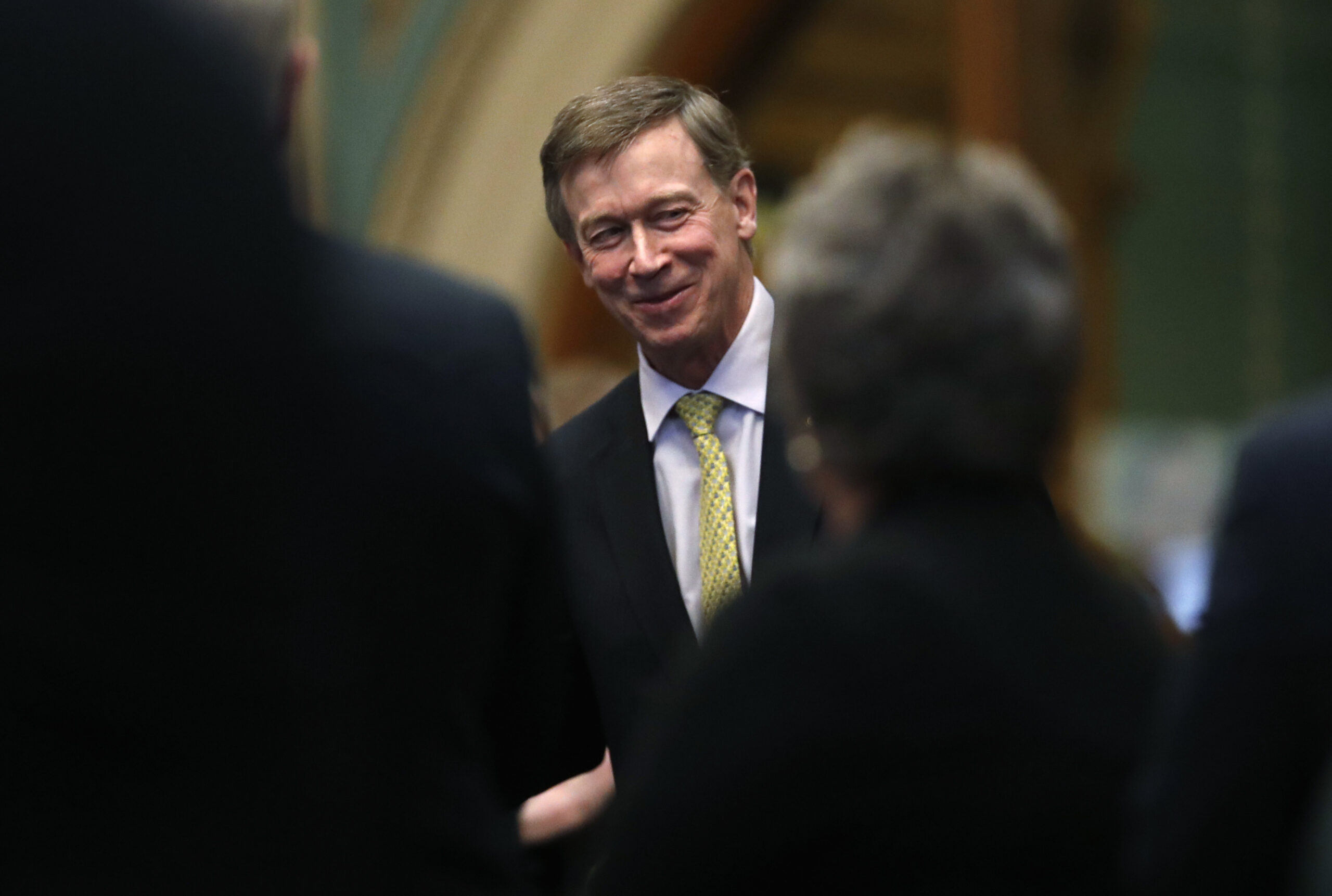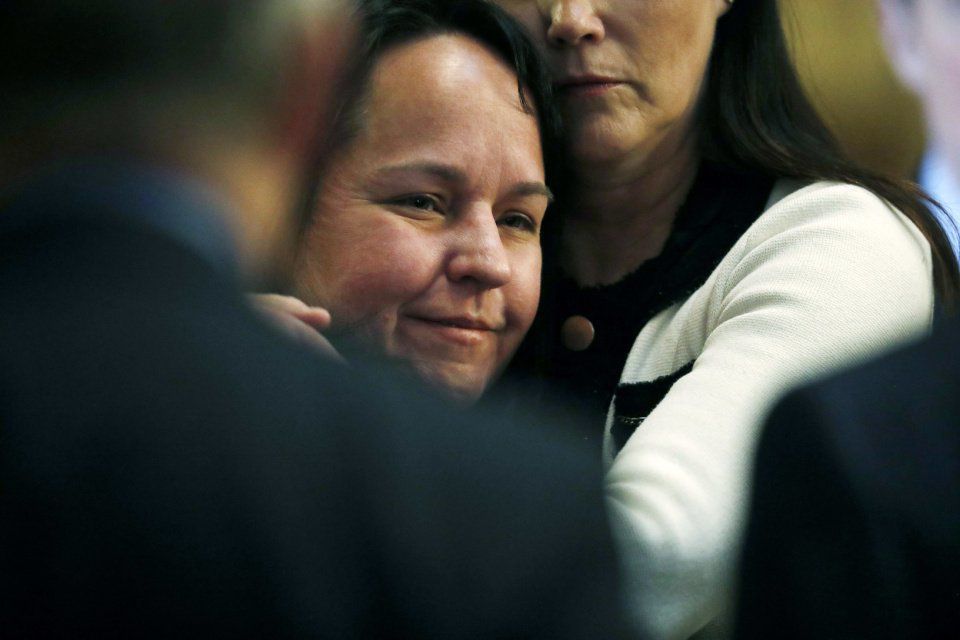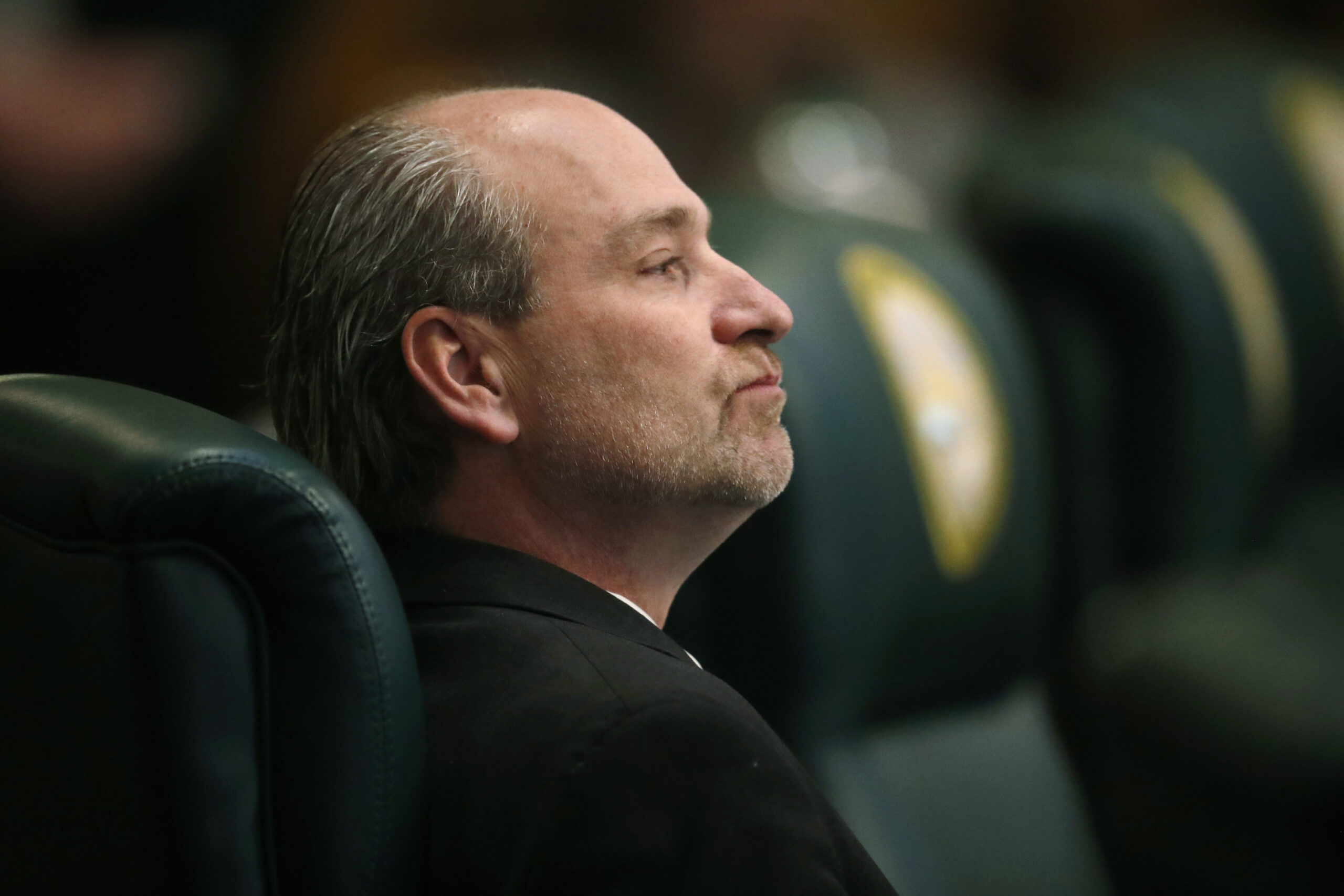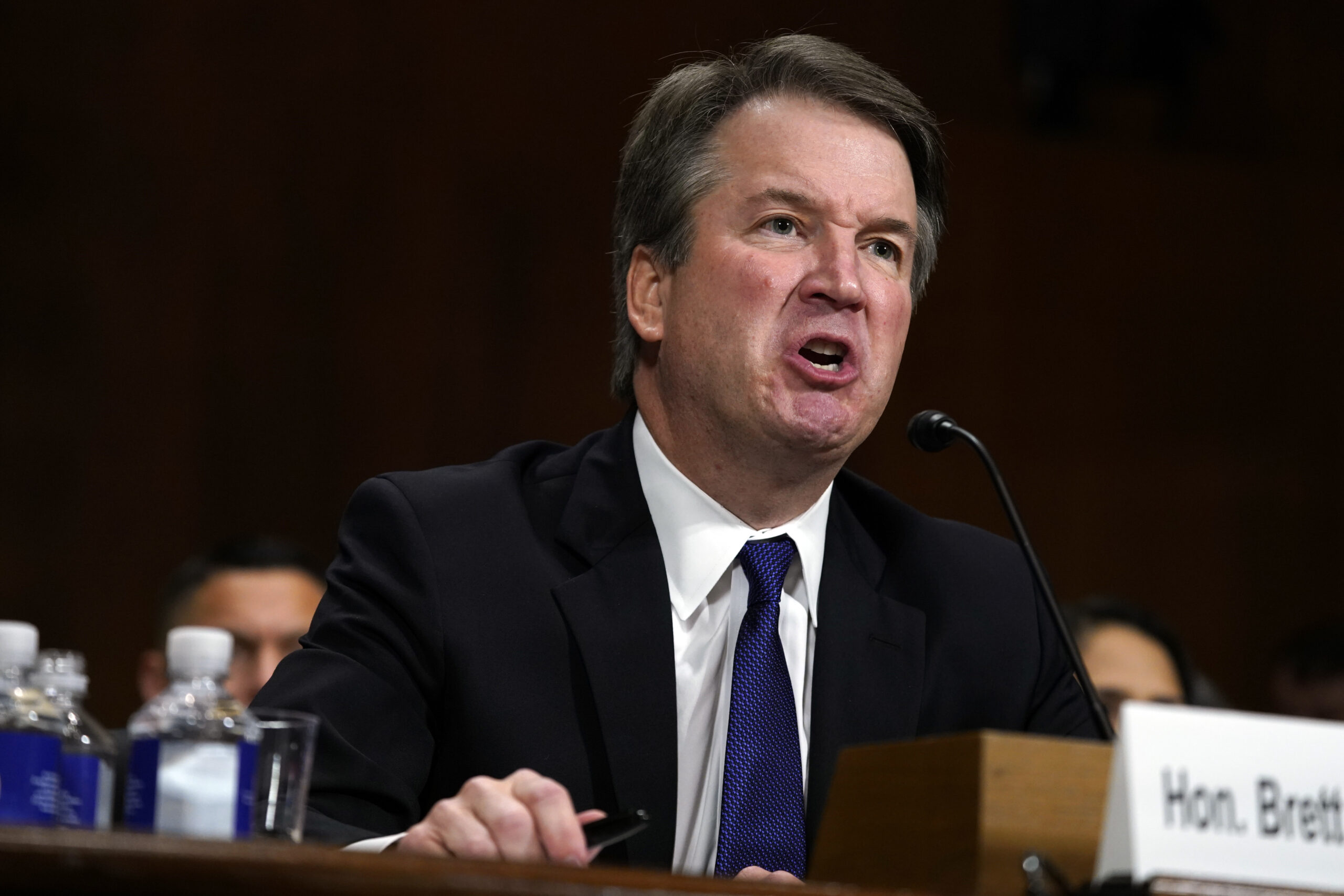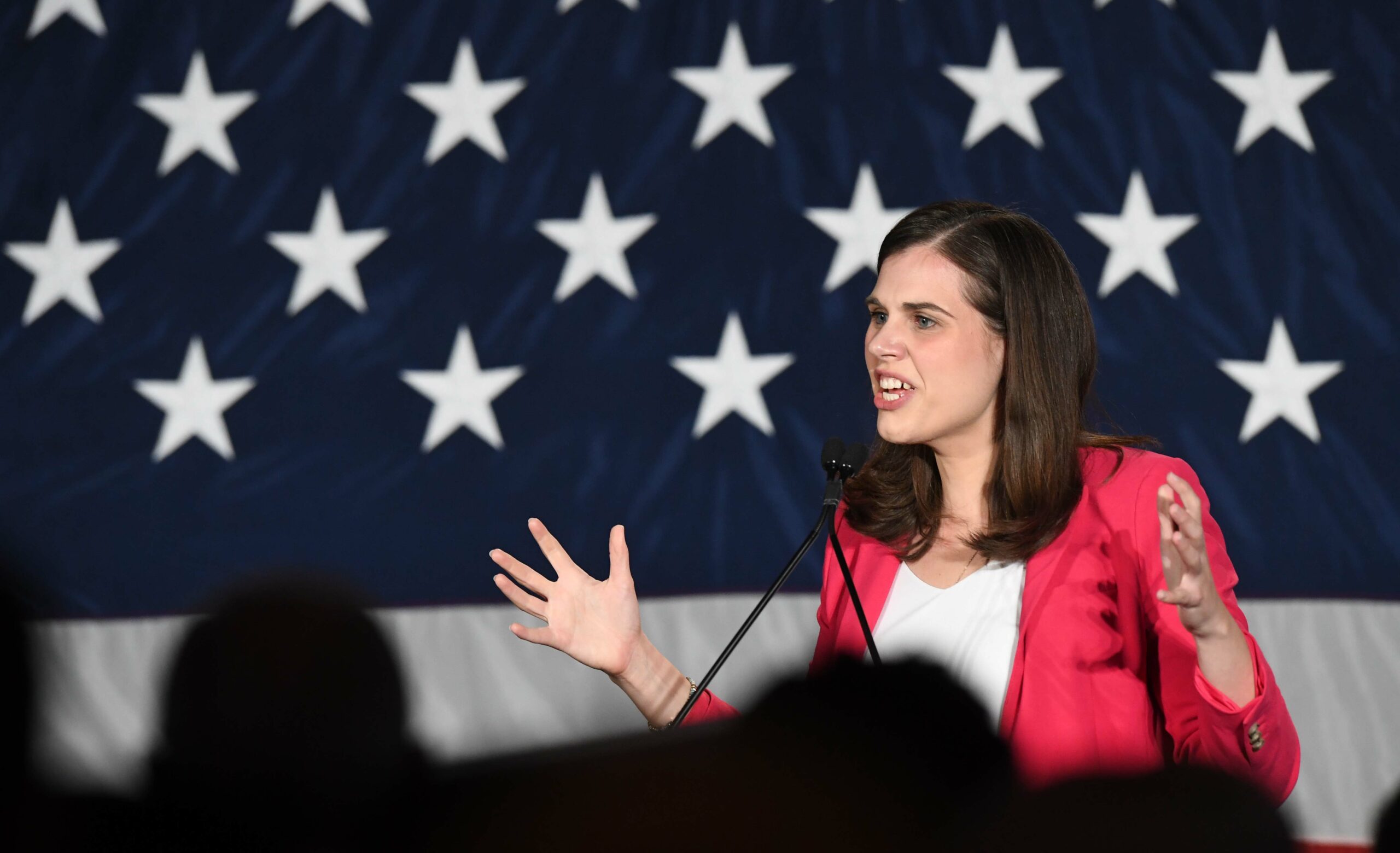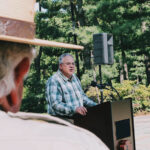COVER STORY | 2018: CoPo’s look back at the year in politics
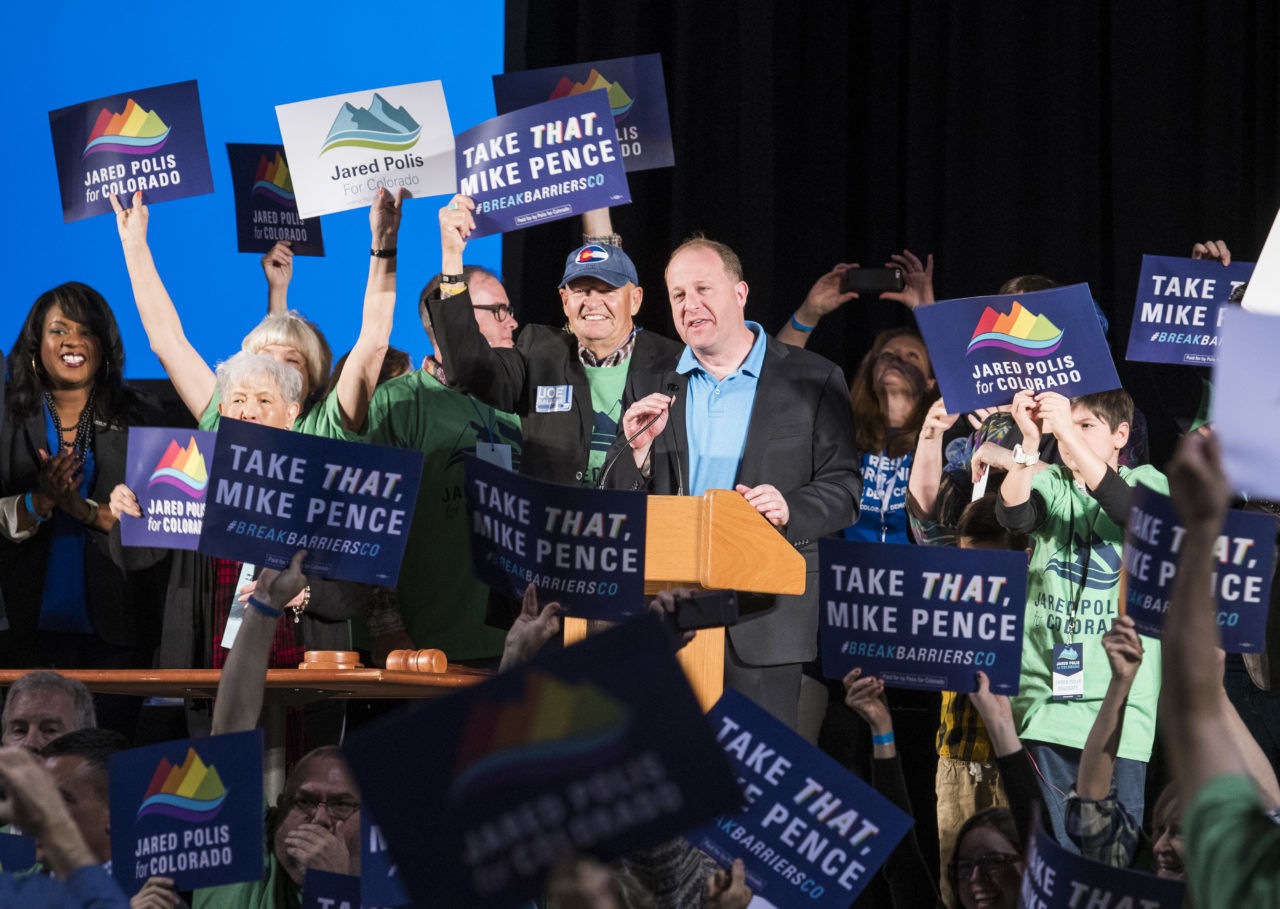
The year came barreling in like a freight train and just kept going, week after week, month after month, with 2018 packing more than its share of twists and turns and downright jaw-dropping moments into a single trip around the sun.
Some stories unfolded over the entire year, including fallout from the #MeToo movement. Sexual harassment allegations that rocked the state Capitol in the closing months of 2017 played out over tense months and brought an end to more than one legislative career.
Colorado’s midterm elections dominated the state’s political news from start to finish as an unprecedented number of candidates vied for open seats up and down the ballot. Just one statewide official, Republican Secretary of State Wayne Williams, sought re-election, and primary challengers lined up in six of the state’s seven congressional districts.
And President Donald Trump loomed over nearly every rapid-fire news cycle and wrapped a blustery context around almost every political development. Democratic candidates vowed to stand up to the president, but Republicans alternated warm embraces with cold shoulders as candidates sought to navigate between an extremely pro-Trump base and the larger electorate, which doesn’t much like the president.
Here’s a look back at 2018 as reported in these pages and at ColoradoPolitics.com.
‘All steps necessary’
The state was reeling as the year dawned under gray skies and flags flew at half-staff. A day earlier, Zackari Parrish, a Douglas County deputy sheriff, was killed in a pre-dawn ambush at an apartment complex on New Year’s Eve in an attack that drew Trump’s tweeted condolences for his family. Gunman Matthew Riehl, who had a history of posting online tirades against law enforcement and was killed at the scene, left six others wounded.
Colorado officials gave U.S. Attorney General Jeff Sessions a piece of their mind when the long-time critic of marijuana legalization moved to reverse a policy that had kept federal hands mostly off states that have legalized the drug. Republican U.S. Sen. Cory Gardner vowed to take “all steps necessary” to block the move.
As the 120-day legislative session launched, term-limited Gov. John Hickenlooper drew a firm line in his final state of the state address, warning Washington that state officials “expect the federal government will respect the will of Colorado voters.” Adding to the valedictory tinge, the governor quoted a farmer in an observation about the road ahead: “In Colorado, you can be a rainfall away from a record crop, but a hailstorm away from losing it all.”
The candidates jockeying to take the Democratic governor’s place after the 2018 election closed the books on 2017, with some setting fundraising records, including Republican State Treasurer Walker Stapleton, a scion of the Bush dynasty, and former state Sen. Mike Johnston, a Denver Democrat who landed backing from billionaire Michael Bloomberg and a slew of Silicon Valley denizens. Meanwhile, the top self-funders in the race, Democratic U.S. Rep. Jared Polis and Republican Victor Mitchell, continued pouring millions into their own campaigns.
An ongoing spat between the Colorado Hispanic Republicans and the leading Republican gubernatorial candidate, former U.S. Rep. Tom Tancredo, limped to an anti-climactic conclusion.
After first denying him a spot at its candidate forum, Hispanic GOP leaders said Tancredo could participate if his supporters came up with $1,500 to help pay for the event after a sponsor who didn’t cotton to the immigration hard-liner pulled funding.
When the night arrived, however, a flu-stricken Tancredo missed the forum. Soon after, the presumed front runner sent heads spinning when he ended his campaign, citing lackluster fundraising.
Crow leads Coffman
By early February, candidates were finalizing whether they planned to try to get on the primary ballot by petition or by going through the March caucuses and the subsequent assembly process – or, in a few cases, to pursue both methods. Strategists pondered the effect Colorado’s brand new open primaries would have, as unaffiliated voters, the state’s largest group, would have their say in party nominations.
Gardner and U.S. Rep. Scott Tipton, the Republican who represents Colorado’s Western Slope, introduced legislation to move the headquarters of the federal Bureau of Land Management to a western state in the latest development in a long-brewing plan to situate Interior Department officials closer to the natural resources and treasured land they manage. Interior Secretary Ryan Zinke said his department was working on moving some top brass to the hinterlands in an effort Tipton maintained would “ensure the Washington-knows-best mentality doesn’t continue to deeply influence decision-making at BLM.”
Hickenlooper joined dozens of officials and thousands of mourners to remember El Paso County Sheriff’s Deputy Micah Flick, the third Colorado law enforcement officer killed in the line of duty since the year began. “The entire state is grieving with you,” Hickenlooper told Flick’s widow, Rachael, and 7-year-old twins Eliana and Levi. “Colorado is better off because of your father, and he will be sorely, sorely missed.”
In a gripping indictment that read like the notes for a Cold War spy novel, Special Counsel Robert Mueller’s team charged 13 Russians and three Russian companies with interfering in the 2016 presidential election, including a recon trip to Colorado and eight other states. But Williams, the state’s top election official, said there was no record that any of the Russians did anything other than maybe look around when they visited the state.
Democrat Jason Crow led U.S. Rep. Mike Coffman, a five-term Republican, by 5 percentage points in a survey, marking the first time Coffman had ever trailed a challenger in publicly available polling. In the wake of the Valentine’s Day mass shooting at a high school in Parkland, Florida, Crow was hammering Coffman for taking more money from the National Rifle Association than any other member of Congress from Colorado, and constituents booed the incumbent when gun policy came up at a testy town hall.
#MeToo casualties
The Colorado House of Representatives did something in early March that it hadn’t done in more than a century when members voted 52-9 to expel Steve Lebsock, a three-term Thornton Democrat charged with sexually harassing five women, including a fellow Democratic legislator. The vote, following a tense seven hours of debate, was capped by Lebsock’s revelation that he’d switched his registration to Republican right before the expulsion, which gave the GOP the right to fill his seat with a vacancy appointment.
Lebsock would be only the first Colorado casualty of the #MeToo movement. State Rep. Paul Rosenthal, a Denver Democrat facing harassment allegations and complaints over his voting record, was kept off the primary ballot by two challengers, including progressive firebrand Emily Sirota, who won the seat. State Sen. Randy Baumgardner, a Hot Sulphur Springs Republican, narrowly escaped expulsion in the Senate after investigators determined harassment complaints against him were credible but announced in late December that he would resign two years before his term was over.
Democrat Cary Kennedy, a former state treasurer, trounced the crowded gubernatorial field with half the vote in a preference poll at precinct caucuses, though her fellow Democrats – Polis, Johnston, Lt. Gov. Donna Lynne and businessman Noel Ginsburg – were also petitioning their way onto the June primary ballot.
Dignitaries including Hickenlooper, Gardner and Bennet traveled to Connecticut to celebrate the commissioning of the USS Colorado, a nuclear attack submarine, the third Navy vessel to bear the state’s name. “No mission too hard, no waters too deep, the USS Colorado will secure our nation, reassure our allies and strike fear in the hearts of our adversaries,” Gardner said in the keynote address.
Candidate maneuvers
Colorado’s candidate petitioning process came under scrutiny in April when a group of GOP opponents challenged U.S. Rep. Doug Lamborn’s petitions in court, arguing that a big chunk of the Colorado Springs Republican’s signatures were fraudulent. After numerous trips to court, Lamborn stayed on the ballot, but not until after the firm that gathered his signatures was accused by Stapleton’s campaign of engaging in fraudulent conduct when it circulated petitions for the gubernatorial candidate.
On a dime, Stapleton switched from petitioning his way into the primary to an attempt to get on through the state assembly, which was scheduled just days away. With Tancredo nominating him, Stapleton won top-line designation from GOP delegates and managed to keep his chief rival, Attorney General Cynthia Coffman, off the primary ballot for governor over her protests that his 11th-hour gambit violated party rules. Former Parker Mayor Greg Lopez also made it out of the assembly, while Mitchell and businessman Doug Robinson got on by petition.
The same day, Kennedy won the delegate vote at the Democrats’ state assembly, but Polis ran a strong second and also secured a spot in the June primary. Meanwhile, Johnston and Lynne qualified by petition, setting up a four-way primary for governor.
‘Red flag’ bill fails
The legislative roared to a conclusion in early May as Republicans defeated a late “red-flag” bill to allow authorities to seize firearms from individuals deemed at risk to themselves or others.
Stung by attacks from gun-rights advocates, three prominent GOP officials who backed the proposal all went down to defeat in November – Coffman, who introduced a federal version of the bill; state Rep. Cole Wist, R-Centennial; and District Attorney George Brauchler, the nominee for attorney general, who cited the New Year’s Eve ambush that killed Parrish, the Douglas County sheriff’s deputy, as an occasion when the law could have been used.
Moment before the final gavel fell – after months of wrangling – the General Assembly approved a deal to patch up PERA, the state’s ailing public pension program, by pumping big bucks toward filling an estimated $32 billion shortfall in coming decades.
As the primary approached, elbows started flying in the races for governor, with Democrats tussling over ads funded largely by teachers unions that attacked Polis, while Republicans hurled insults at each other amid a rush to embrace Trump and the administration’s harsh immigration policies.
Cakeshop controversy
Calendars had barely flipped to June when the U.S. Supreme Court unveiled its long-anticipated Masterpiece Cakeshop decision, overturning a lower-court decision against a Lakewood baker who refused to make a wedding cake for a same-sex couple. In a limited ruling, the high court questioned the conduct of the Colorado Civil Rights Commission, which had sanctioned the baker, but didn’t rule on the underlying question about discrimination, leaving all sides claiming at least a piece of a win.
Unaffiliated voters exceeded most expectations by turning out in droves for the primary. Presaging trends that played out in the November election, more unaffiliated voters decided to cast ballots in the Democratic primary, helping boost Polis to a convincing win in the gubernatorial race. Stapleton, likewise, easily defeated his primary rivals.
In nearly every other primary, Colorado voters hewed toward the more establishment – and in most cases better-funded – candidate, picking Democratic U.S. Rep. Diana DeGette over challenger Saira Rao in the 1st Congressional District, sticking with Lamborn over a handful of upstart challengers, handing the nomination to Crow instead of the pugnaciously progressive Levi Tillemann, and sending former Democratic state Rep. Diane Mitsch Bush instead of political newcomer Karl Hanlon to run against Tipton. State Rep. Dave Young, D-Greeley, won the state treasurer nomination over the more left-leaning Bernard Douthit, and in a squeaker, Democrat Phil Weiser won the attorney general nod over state Rep. Joe Salazar, D-Thornton.
Campaigns gear up
Polis announced in early July that he had named former state Rep. Dianne Primavera, D-Broomfield, CEO of the Susan G. Komen Colorado nonprofit, as his running mate for lieutenant governor, but Stapleton kept his pick a secret for weeks, eventually revealing that his wingman was state Rep. Lang Sias, R-Arvada, a former Navy Topgun pilot.
The campaigns mostly ambled through the summer with a dust-up here and there, like when Republicans pounced on the Polis campaign’s announcement that he would skip Western Slope advocacy group Club 20’s debate in Grand Junction in early September, traditionally the start to the fall debate season.
The airwaves started to fill up with ads as Labor Day neared, with some of the biggest spending coming from oil and gas interests opposed to Proposition 112, which would have imposed 2,500-foot setbacks between new drilling operations and any occupied structures – effectively sinking the fossil fuel industry in the state, opponents argued. By the time the proposal had gone down in defeat in November, it turned out the industry had sunk as much as $40 million into the campaign, outpacing the more than $20 million Polis spent on his own race.
Boulder woman accuses Kavanaugh
While the campaigns mostly held the spotlight as leaves began to fall and the air grew crisp, the intersection of local and national events commandeered Coloradans’ fractured attention for a stretch in late September and early October when a Boulder woman went public with allegations of sexual misconduct against Trump’s U.S. Supreme Court nominee, Brett Kavanaugh.
Deborah Ramirez, a longtime volunteer helping victims of domestic abuse and sexual assault at a Boulder nonprofit, said in a story reported by the New Yorker magazine that Kavanaugh had exposed himself to her during a drunken dorm party when both were freshmen at Yale University in the early 1980s, the second public allegation of sexual misconduct against the appeals court judge.
The bombshell emerged just days before the Senate Judiciary Committee was scheduled to hear testimony from Kavanaugh and Christine Blasey Ford, who had just alleged that Kavanaugh sexually assaulted her at a high school party in Maryland. Following a daylong hearing that transfixed the nation, in which Kavanaugh denied all the accusations of misconduct leveled at him, Republican senators – including Gardner – voted to confirm Kavanaugh to the lifetime appointment on the high court.
In the aftermath of more public polling that showed Crow expanding his lead over Coffman, a major GOP campaign group affiliated with House Speaker Paul Ryan, the Congressional Leadership Fund, announced it was canceling millions of dollars in ad reservations supporting Coffman as Republicans moved to cut their losses in races they didn’t think were winnable. A few weeks later, the other major Republican group spending on Coffman’s behalf, the National Republican Congressional Committee, also pulled the plug on the race.
As Polis and Stapleton plowed through a heavy series of debates, and polling by a Republican firm showed Polis maintaining a lead heading into the homestretch before the election, two Denver TV stations took a nearly unprecedented step when they yanked an ad paid for by a shadowy anti-Polis independent expenditure committee off the air after the Polis campaign called it “false, defamatory and malicious.” The ad, part of a $700,000 ad buy from the ironically named Colorado Citizens for Truth, attacked Polis with a widely debunked claim surrounding a 1999 incident when Polis attempted to stop an employee from stealing valuable paperwork from a company he owned. Stapleton, for his part, continued to attack Polis with the charge.
The blue wave hits
Heading into Election Day, ballot-return data pointed toward a good year for Democrats – Republican voters were returning ballots at significantly lower rates than in previous midterms, while Democrats and unaffiliated voters were outpacing their performance in prior years – but even the most die-hard Democrats were stunned at the extent of the blue wave that washed over Colorado when the votes were all counted.
Polis and Primavera bested Stapleton and Sias by 10 percentage points – marking the 10th time in the last 12 elections that state voters have put a Democrat in the governor’s office. And Democrats swept the statewide races, won back the majority in the state Senate and increased their margin in the House to a level not seen since the 1940s. Crow unseated Coffman in what would be the Republican’s first electoral loss in more than 30 years as Democratic House candidates chalked up a bigger national midterm win than in any year since Watergate.
The results saw a number of firsts for the state. Polis is the first openly gay governor elected anywhere nationwide and will be Colorado’s first Jewish governor. Weiser, likewise, will be the first Jewish attorney general, and Jena Griswold, who defeated Williams for secretary of state, will be the first Jewish occupant of that office, as well as the first Democratic woman to hold it.
Democrat Joe Neguse, elected to the 2nd Congressional District seat Polis gave up, will be the first African-American the state has sent to Congress. Democrat Brianna Titone, who won the Arvada House district Sias gave up to run for lieutenant governor, will be Colorado’s first transgender lawmaker.
Some Republicans have argued that the blow-out wasn’t as bad as it looked because voters rejected left-leaning ballot measures – including Proposition 112 – without acknowledging that the right-leaning ballot measures also went down. The few that passed include twin proposals to give unaffiliated voters more say in how legislative and congressional districts are drawn after the census and a measure to banish slavery from the state constitution.
As Coloradans’ thoughts turned to the approaching holidays, the newly elected Democrats – and returning lawmakers who would be running the show in the General Assembly – set about staffing up and assembling what they’ve promised will be a “bold” agenda. Republicans, meanwhile, have been lobbing criticism and warning against overreach while at the same time preparing to defend Gardner’s seat in 2020, when he will be the most vulnerable Republican senator on the ballot nationwide.


